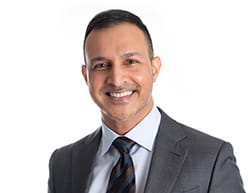As the 'smart city'
movement proliferates around the globe, governments are seeking to transform
cities using data and technology to address the pressing issues brought about
by climate and societal change, and urbanisation.
With innovations in high-speed transport networks, autonomous vehicles, high-speed digital networks and new manufacturing technologies the market has enormous potential and is expected to reach a worth of over $750 billion in 2020, according to a Markets and Markets 2016 report. Implementing the smart city vision comes with its challenges and manifests itself differently depending on a country’s geopolitical characteristics. Taking a closer look at how smart cities are being approached in the UK and the Middle East reveals some crucial differences.
While the number of smart solutions developed so far is vast, a broad global scan reveals several smart city initiatives are ahead of others and are receiving significant attention for their achievements. Singapore, Barcelona or Amsterdam have invested heavily in becoming smart cities, alongside more radical propositions such as Masdar City in Abu Dhabi, a carbon neutral residential district in Dubai, or the latest utopian vision called NEOM, a new $500 billion fully automated global hub in Saudi Arabia designed to operate as an independent economic trade zone.
What these initiatives have in common is the ambition to improve efficiency, optimise energy generation and distribution, and allow real-time optimisation and incident management, yet "the fundamental issue with smart cities is that there is no single, universally accepted definition. It can mean different things to different people, from city to city and country to country" says Amardeep Gill, Corporate Partner in Trowers & Hamlins’ Birmingham office.
This is demonstrated in the diversity of drivers for investing in smart cities. For example, GCC (Gulf Cooperation Council) countries see an opportunity to address the necessity of reducing dependency on oil based revenues, the need to support rapidly growing populations as well as to showcase cutting edge urbanism to the rest of the world.
"What is interesting is that countries such as the UAE, and Dublin in particular, are constantly coming up with new ideas and products to attract investment. In that sense, they act a bit like listed companies with an eye change on the share price. Smart cities are a good example of this" says Abdul-Haq Mohammed, International Managing Partner based in Trowers & Hamlins’ Bahrain office.
Drawing on the experiences of other smart cities and also on global expertise in the field is crucial to the movement. The Dubai Smart City strategy, for example, was created and is being implemented with the help of UK based Future Cities Catapult, one of the ten organisations in the UK’s Catapult network established by Innovation UK, the UK government’s innovation agency to drive future economic growth.
"The same drivers don’t necessarily apply directly to the UK context," argues Gill.
"The smart city concept here is more widely used to address the need for retrofitting existing infrastructure with smart technologies, improve standards of living, empower citizens and make cities safer."
There are also differences in how smart city programmes are positioned at a strategic governmental level. Countries with more centralised government structures such as those in the GCC often set out the vision for smart city initiatives at governmental level, opting for a top-down delivery approach, allowing for rapid decision-making and implementation. In the UK these conversations usually take place at a municipal level through collaborative stakeholder engagement which tends to create initiatives that have more buy-in with stakeholders, yet makes the process slower and more costly.
There remain questions around ownership and responsibility of who should carry the burden of the UK smart city agenda. Should it be central government, should it be local government, or should it be the private sector? According to Gill "the delivery of smart cities involves strong leadership and buy-in from local and central governments as well as citizens coupled with the technology and delivery expertise of the private sector. The smart city vision needs to be set at a strategic level. There needs to be a degree of competition, and cities have to want it and demonstrate a willingness to maintain momentum over political cycles."
Developing entire smart cities from scratch has proven a precarious and volatile endeavour, as in the case of Masdar City in Abu Dhabi for example. However, even though Masdar’s ambitious plans for a zero carbon city in the middle of Abu Dhabi’s desert have changed drastically since they were first conceived, "it has pushed our thinking of what’s possible enormously and has inspired similar smaller initiatives to be successfully rolled out." "Smart city initiatives in the GCC can be delivered fairly quickly" says Mohammed.
"The financial model and anchor investment needs to be secured but when the potential will is there, the administrative, bureaucratic barriers can easily be tackled."
"Envisioning future infrastructure from scratch, as is the case in many GCC countries, allows cities to get more things right from the outset. Incrementally retrofitting cities with smart technologies as is more widely adopted in the UK on the other hand, is often more deliverable. Irrespective of the delivery approach, one of the key challenges of smart city initiatives is how they anticipate constant change and remain adaptable and functional over the years" says Gill.
What is clear is that the number of cities looking to digital solutions to tackle the challenges they face all around the world is set to increase along with the pace of change. Each city must come up with its own answers which present enormous potential for technology companies who can address those needs.

